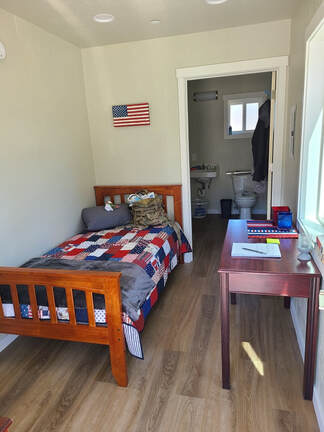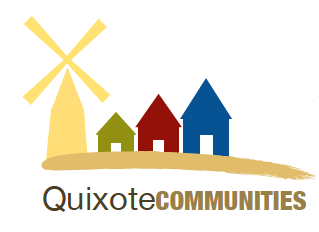Orting Frequently Asked Questions
|
Interested in how to start a tiny home village in your community?
|
Where is the orting village located?
The Orting Veterans Village is located at the Washington State Department of Veterans Affairs (WDVA) Soldiers Home in Orting, a 181 acre campus with nursing and domiciliary facilities for veterans as well as other programs. The campus was first established in 1891 for veterans of the Civil War and is located 1.5 miles from downtown Orting. Our address is 19607 162nd Ave Orting, WA 98360. Who lives at the village and what are the eligiblity requirements?
is this temporary or permanent housing? are there rules?
Who manages the orting veterans village?
The Village is supported by Panza dba Quixote Communities. We are on the Washington Department of Veteran Affairs' campus but are not an affiliation of the WDVA. We are a separate 501c3 nonprofit organization. The Orting Veterans Village is a separate program, however, we work closely with staff of the WDVA to ensure we are good neighbors and work with them to help some of their transitional housing residents move into the village. We have a Program Manager, Program Supervisor, and 2 Case Managers on site. HOW Was the CONSTRUCTION OF THE VILLAGE FUNDED?
The Village costs approximately $5MM to build. This comes at $135,000 per tiny home. That is about 50% of what it costs to build an affordable apartment (including our large community center, land development, and all soft costs)!
how is the operation of the village funded?
We have a great partnership with the Pierce County Housing Authority, who provides 25 project-based vouchers (similar to Section 8) to supplement residents' rent to help cover some of our operating costs. We also have a partnership with the VA, who provide 10 Veteran Affairs Supportive Housing (VASH) vouchers. In addition, we have received a grant from Pierce County and the Department of Commerce to provide funding for operating, maintenance, and supportive services funds and other services necessary for the residents to succeed. We also apply for grants to local foundations and fundraise for the village as well as reach out to the local community for support. WHAT is IN THE COMMUNITY CENTER?
What model do you use?
why tiny homes?
HOW MANY HOMES are there?
We have 35 tiny homes and 1 Community Center. There are 29 standard cottages and 6 ADA cottages, for those with mobility disabilities. WHAT is OFFERED AT THE VILLAGE?
will there be violence and crime?
what about drug use?
can i visit?
|


